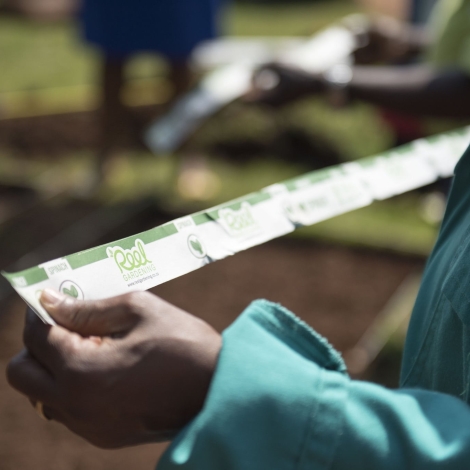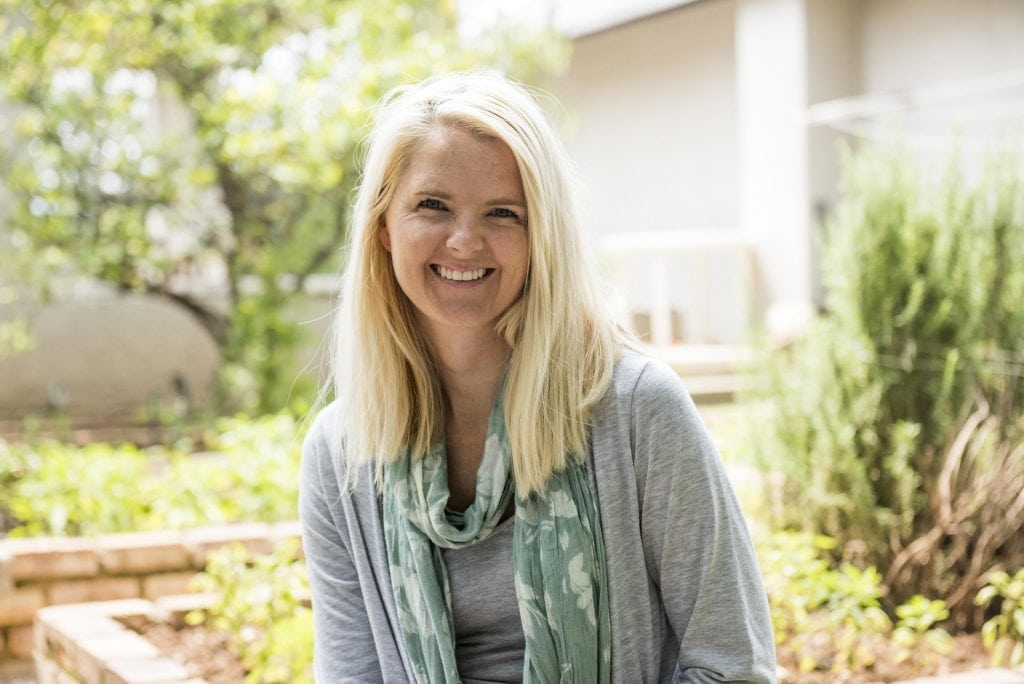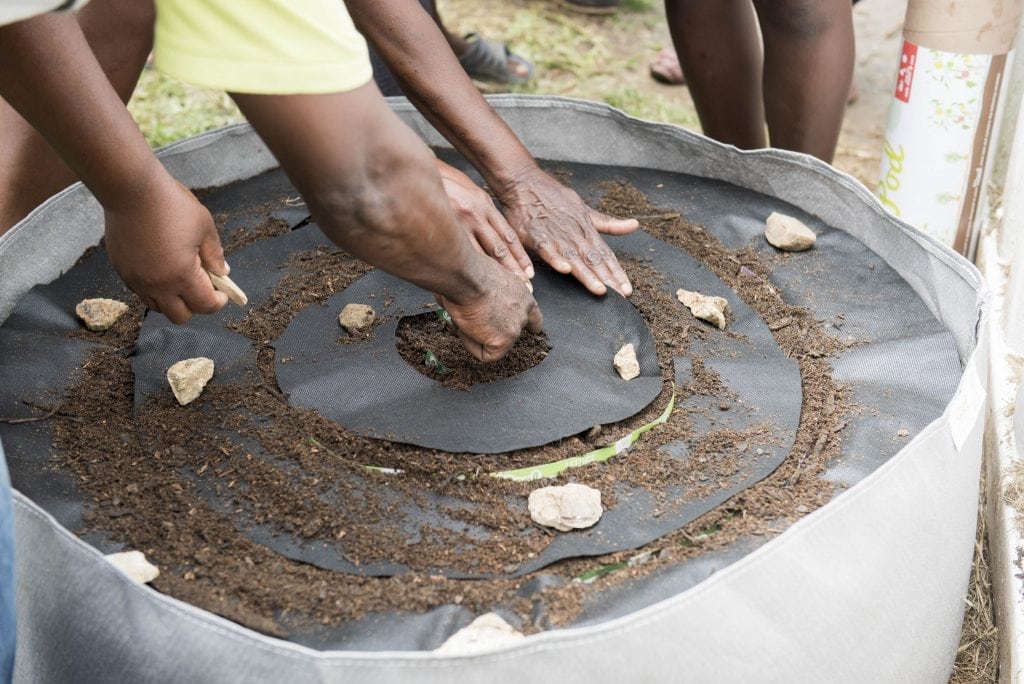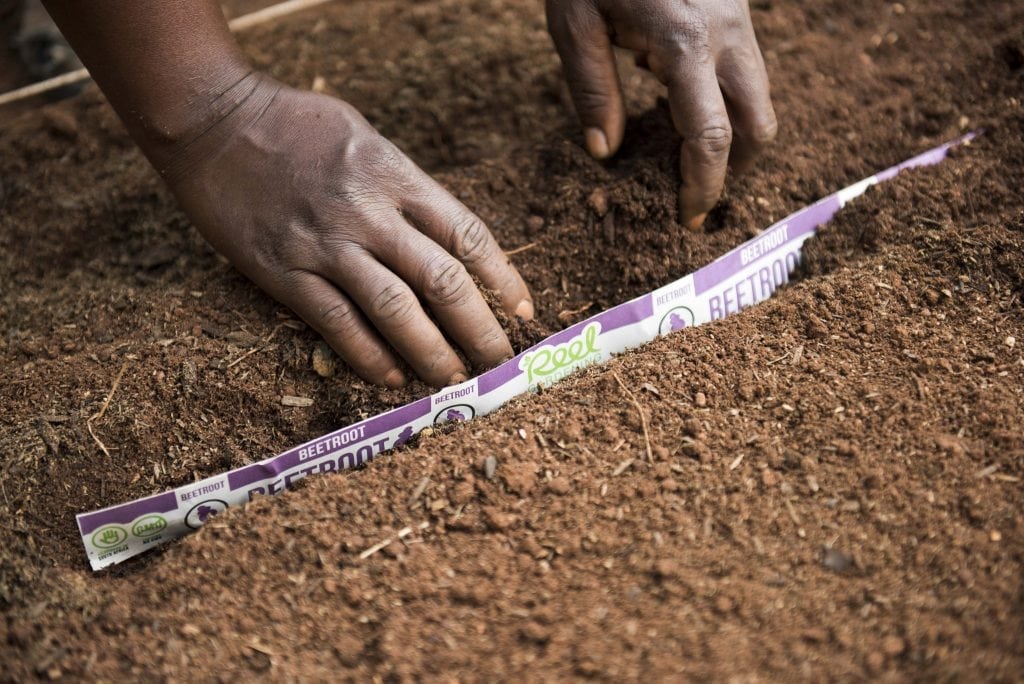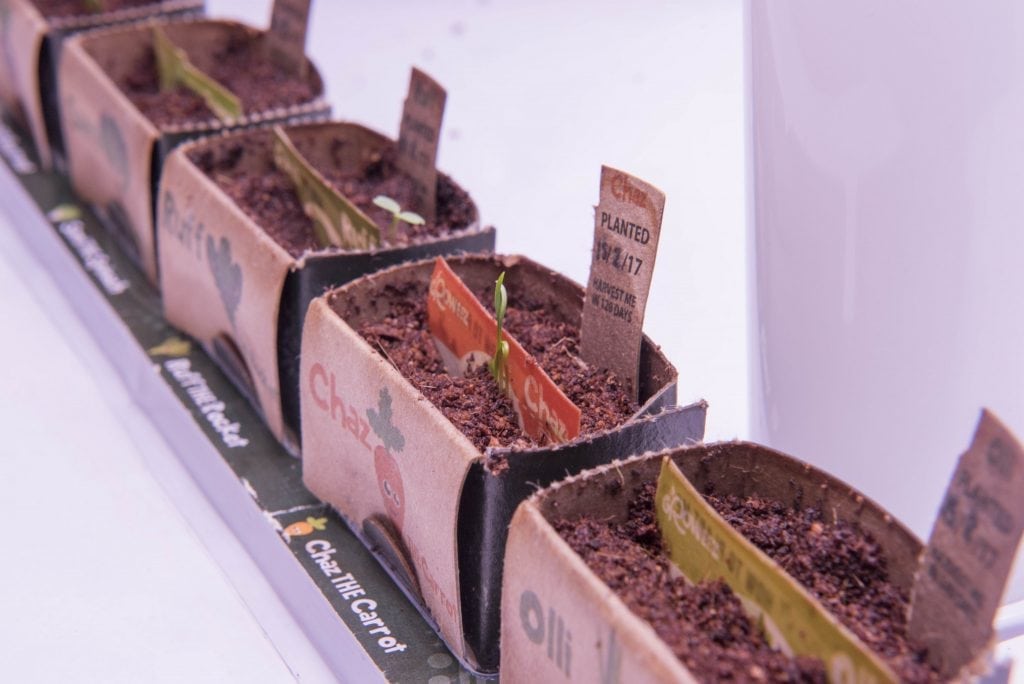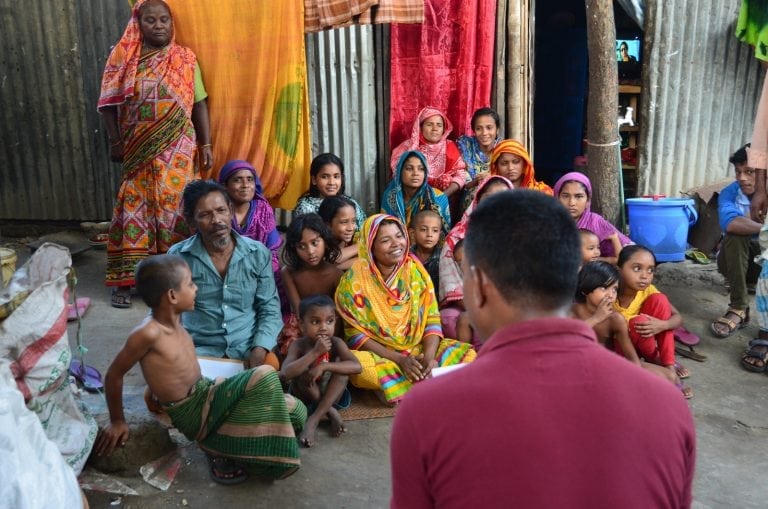Editor’s note: This report is based on comments from the panel discussion “Overcoming Barriers to Scale: Lessons from Successful Businesses and Organizations” at USAID’s Global Innovation Week in Washington, DC.
Reel Gardening started out as a home gardening project, then took a circuitous route through its evolution into a business for social impact. The company’s story holds a lesson in the power of flexibility and creativity for young charities and social startups still finding their paths.
Claire Reid designed seed tape as a teenager in 2002. It was a simple innovation that allowed her to plant seeds at the correct depth and distance apart in her family’s garden in South Africa. Seeds stuck to the tape at a measured distance apart could take root and grow at optimal places in the garden. Ms. Reid explored the science behind her invention and the impact it may have, learning about its potential to conserve water, improve yields, and inspire better nutrition. Seed tape empowered households to plant and grow produce on their own.
Ms. Reid built her business from the ground up, using connections in South Africa, expertise in architecture, and a passion for healthier more sustainable produce. She founded Reel Gardening in Johannesburg in 2010. The goals were to hire unemployed mothers, maintain a commitment to a healthy natural environmental, empower families to grow their own foods, and improve education on gardening and nutrition.
The flagship product is the seed tape. These biodegradable paper strips enclose the seeds of vegetables or other kinds of plants within. Each strip of seed tape is aligned into a furrow in the garden, eliminating the need to measure depth or distance between. The company now sells Garden in a Box, which includes a variety of relevant seeds, as well as Grow Pod, a garden-sized potter made from recycled bottles.
But, Reid’s success story isn’t about gardening. It’s about the importance of flexibility in start-ups, to pivot and to move towards a sustainable business model that closes the gap of the last mile. Engineered designs are crucial in the alleviation of poverty, but they can’t stand alone. Who will pay and continue to pay for these products and services, and how can we create systems that model the most successful enterprises in the world, yet work for the betterment of humankind?
Reid learned the important lesson that many budding social entrepreneurs come across: You need to sell to customers who can afford to buy your product. All things considered, this customer population might not be your target consumer. How can you leverage sales to support your target population and reach your social goal?
Reel Gardening’s major pivot came after the realization that they could not thrive as a social entity alone. They needed to create demand, join the market, and build a network of partners and customers. This pivot didn’t detract from their social aims; it allowed them to flourish.
In practical terms, the organization stopped emphasizing the number of beneficiaries and instead began keeping tally of unit sales, sale margins, re-purchase rates, and market size. Profitable, sustainable sales allow the social aspect of the business to thrive. With a network of customers and partners set up, the cash flow and infrastructure were there to work with their target populations on developing educational experiences. Garden boxes and seed tape are sold to paying customers who see the value in the product, can afford its price, and use it for their needs. For each product sold, one is donated to a participating school.
The buy-one-give-one model motivates purchases on the front-end, while providing a consistent and reliable stream of funds for the charitable work Reel Gardening was built for. Reel Gardening doesn’t just drop off donations, however. The school partnerships are based on creating meaningful educational opportunities for students. Ms. Reid’s team works with the schools to incorporate the activity into their curriculum. In this way, vegetable garden seed tape has become a teaching tool for systemic change in how South Africans access and view their foods. Empowering students to learn about the foods they eat, grow their own, and share these lessons with their families at home will lead to systematic change in food security and nutrition, Reel Gardening believes.
For information on Reel Gardening please see www.reelgardening.co.za.
